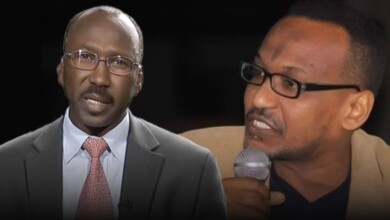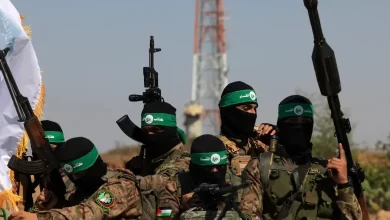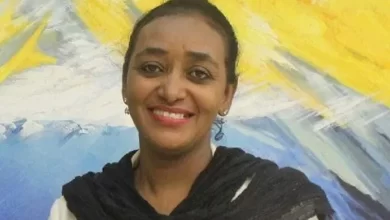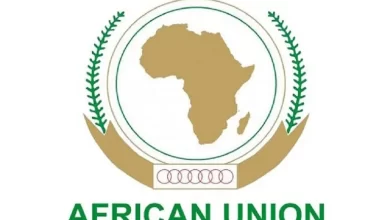Sudan’s koz Nostra: The end of an illusion and the inception of a nation

Dr. Al-Waleed Adam Madibou
“Tyranny can only be built on pillars of fear, lies, and silence.”
— Gibran Khalil Gibran
At the heart of Sudan’s devastation, the “koz Nostra” continues to practice its sacred rituals in the dark —a group not unlike the Sicilian “Cosa Nostra,” except that it wears the cloak of religion and claims purity. Just as loyalty in the mafia was granted secretly behind closed doors, the Sudanese “Koz” swears to protect the network, not the State, and to defend the organization, not the nation. Its -quite simply- a mafia with a religious mentality, adept at political blackmail and money laundering through “relief” fronts, dividing the spoils in its closed-door meetings, resembling “Godfather” meetings.
The “koz Nostra” doesn’t believe in democracy, but in allegiance to Satan. It doesn’t recognize the law, but rather empowerment. It doesn’t fear the Almighty, but rather fears the exposure of its hidden truth. While it monopolizes power, wealth, and collective memory, it doesn’t hesitate to use tribal and regional affiliations as a cover for its heinous violations, then that entity proceeds to withdraw, leaving behind devastation and shame to affect the innocent people of the same region.
The term “Cosa Nostra” is originally Italian, meaning “our thing,” in an effort to convey and insinuate privacy and seclusion. The Sudanese reality embodied this idea well when the Islamists established a secret organization that controlled all aspects of the State, running it with a mentality no different from that of transnational criminal organizations. The Sudanese “koz Nostra” ruled in the name of the peoples of the north, however, it inflicted misery on them, just as its Sicilian counterpart did, ruling in the name of its people and simultaneously oppressing them.
The time has come to state what must be said, without fear or flattery: We ought to clearly and unequivocally disavow every criminal who takes refuge in his tribe and every corrupt person who seeks refuge in his region to conceal his shame. There is no honor in crimes committed in our name, and no excuse for those who remain silent. If the Center was once regional and tribal in nature, today that character has vanished. The fire reaches everyone without discrimination, and no one can escape in the name of tribe or seek refuge in the shadow of a region. Today, we are all wading in the depths of regret, biting our fingers over a homeland lost between the greed of killers and the silence of the intellectuals.
There is no salvation for us unless we rid ourselves of the captain who has long lost his mind, the one who combines greed with madness, the love of power with the pleasure of humiliating his people. For him, our homeland is nothing more than a means to achieve his ambitions, a field to obtain his resources, and an arena for settling his disputes. This captain fails to see Sudan as a nation, he sees it as a trophy, his vision doesn’t necessarily view the nation as people, but as hostages.
The “Salvation” Government has attacked our institutions, swallowed up our heritage, and destroyed our economy, but it has failed to completely distort our consciousness. People from the far north to the depths of the south, from Port Sudan to Nyala, rejected it. Despite all the discord and suspicion it sowed, some souls remained stubbornly resistant to submission.
When Nafie and Ali Osman visited the far north region, during the early days of the Salvation Government in order to promote the Islamist project in its ethnic guise, the locals’ response was scathing, with their sarcastic joke: “Moses is one of our own, as well as Jesus and Mohammad. Even the Almighty!!” Their scathing Halfawi sarcasm hurt the former -as expected, but it didn’t deter them. They re-instated the discord in new guises, mobilized the people of the north, warning against the so-called danger of the “marginalized,” and believed they could regain control. Nevertheless, a group of enlightened, nationalist northerners clearly stated: “Not in our name, not this time!”
Although I was once preoccupied with criticizing the Centralization of the State and its historical bias, fairness today requires me to acknowledge that the people of the north, while not annihilated as the people of Darfur, South Kordofan, and Blue Nile were; nevertheless, they have been humiliated, impoverished, and degraded. Hence, its rather unjust to burden these noble and honorable people with the burden of a gang that hijacked and used their name as a cloak. Furthermore, iam not aiming to excuse the fact that some of its members —like a number of my own people— shed the blood of Sudanese people under the pretext of “natural selection,” a practice carried out by the “National Security” Service under the leadership of the Islamists.
The elites of the Center suffered two severe blows: once when the Salvation Government uprooted their economic and political roots, and again when war erupted in the heart of Khartoum, opening the gates of hell on all its inhabitants. The result was mass displacement, humiliation, starvation, and destruction that made no distinction between loyalists and opponents.
To this day, everyone who remains of this gang isn’t ruling but playing meager roles in an absurd play. In Port Sudan, there is no government, but a contrived ghost: a general without charisma, an army without a fighting doctrine, and a “dignity” that has become a national farce. What remains of the Sudanese Army is nothing but a sectarian militia waging a devastating war on behalf of Islamist tribal alliances and vast financial interests. The country is being plundered and burned, while the elite flee their families, watching from the safety of their homes and the shadows of fascination.
In conclusion, the essence of this historical moment is a moral choice that cannot be postponed: either we continue to justify killing in the name of tribe, region, and religion, or we finally rise as a nation that rejects lies and breaks the allegiance of tyrants who view the homeland as nothing more than a plunder farm. There is no time for ambiguity. We must clearly disavow the gang that has constrained the nation and stolen its name. We ought to redefine national honor, free from complicity, silence, and blind allegiance.
What we are facing isn’t limited to being a political dispute, it’s a criminal network that has taken over the State and now wishes to burn what remains of it, in an effort to survive. However, we are capable -if we have the courage- of severing the arteries of this “kozNostra” and establishing a homeland that’s not ruled by killers and where the truth isn’t stifled. Sudan isn’t dead, but it is waiting for someone to say: “Loyalty is to the nation, not to the gang!”





